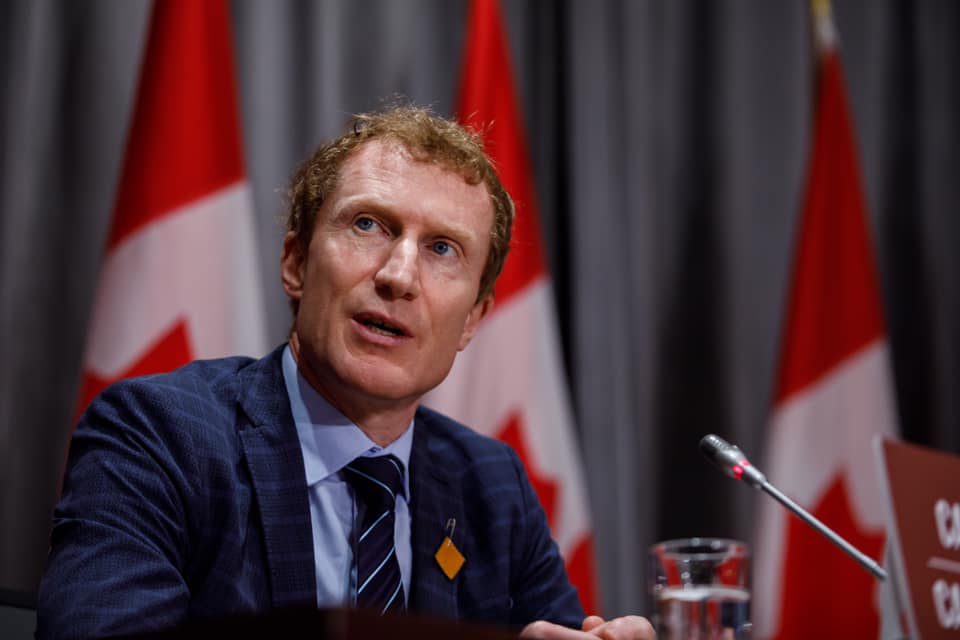
Culturally appropriate and timely mental health supports are critical to promote the well-being for anyone struggling to cope with the added stress and anxiety caused by the COVID-19 pandemic. Indigenous-led, community-driven supports that offer a more holistic approach to mental wellness are necessary to respond to the needs of youth, families and elders. Prior to the pandemic, demand for counselling and mental wellness support was already trending upward. The COVID-19 pandemic has intensified the need for mental health support, innovative solutions are particularly needed now.
Today, Minister of Indigenous Services Marc Miller announced $82.5 million in mental health and wellness supports to help Indigenous communities adapt and expand mental wellness services, improving access and addressing growing demand, in the context of the COVID-19 pandemic.
The pandemic has had disproportionate effects on women, who are more likely to be asked to take on more responsibilities in the home, and who have reported increased rates of family violence during these times of increased isolation. We also know the pandemic has further isolated Indigenous youth and those in the 2SLGBTQQIA community. Access to many mental wellness services for Indigenous communities has been disrupted or has shifted to virtual and telehealth approaches, while many remote communities struggle with limited connectivity. While this has led to further challenges, it also has led to new and innovative approaches to wellness.
The funding announced today responds to the advocacy of many Indigenous leaders who have pushed for enhanced mental supports. This funding will support the Government of Canada’s work with First Nations, Inuit and Métis partners and communities in distinctions-based envelopes.
The funding will help partners and communities to adapt mental wellness services to the current COVID-19 context, including:
- expanding access to culturally appropriate services such as on the land activities, community-based health supports and mental wellness teams;
- adapting mental health services, such as virtual counselling, to meet increased demand; and
- supporting Indigenous partners in developing innovative strategies to address substance use and to improve access to treatment services.
While the COVID-19 virus has affected nearly every facet of day-to-day life, Indigenous Services Canada will continue to support the delivery of quality care, while Indigenous individuals and communities take the lead in responding to their unique, evolving needs.
Quotes
“In almost all of the discussions that I have had with First Nations, Inuit and Métis representatives since the beginning of the pandemic, the importance of recognizing and supporting mental wellness as a core need of the COVID-19 response has been communicated regularly. Community-driven, culturally appropriate and timely mental health supports are critical to promote the well-being for anyone struggling to cope with the added stress and anxiety the COVID-19 pandemic has created.”
The Honourable Marc Miller
Minister of Indigenous Services
Quick facts
- The First Nations envelope will be allocated based on discussions among regional partnership tables. The Inuit envelope will be allocated in discussions with Inuit national and regional representatives. The Métis envelope will be allocated through regional Métis governing members.
- There will also be some funds remaining to enable surge capacity and adaptation among national organizations and services, such as the Thunderbird Partnership Foundation, First Peoples Wellness Circle and Hope for Wellness Line.
- To date, over $2 billion has been committed in specific support to Indigenous and northern communities and organizations.
- From January to April 2019, the Hope for Wellness Help Line received 3,602 calls and chats from individuals seeking crisis intervention services. For this same period in 2020, there have been just over 10,000 calls and chats, representing a 178% increase in demand.
- On July 6, 2020, the First Nations Health Authority (FNHA) in B.C. reported that First Nations overdose deaths almost doubled between January and May 2020.